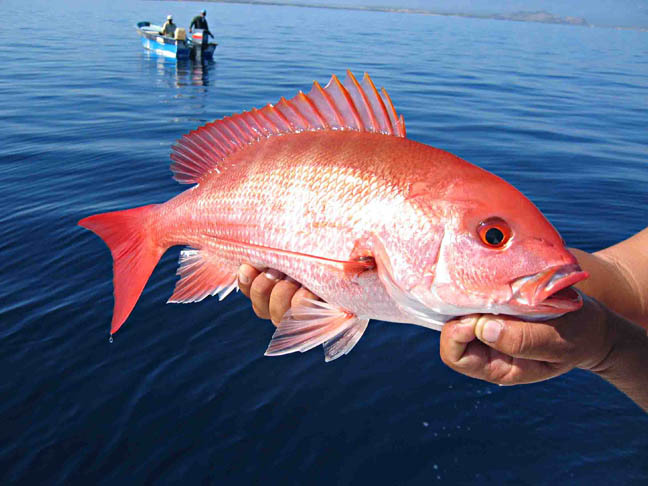Louisiana and Florida are considering joining Texas in allowing longer fishing seasons in state waters than federal wildlife officials allow in federally controlled waters further offshore.
Tough Federal Restrictions
Federal wildlife officials completely banned red snapper fishing in the Gulf of Mexico during 2010 and 2011, and they are allowing red snapper fishing for only 40 days in 2012. Scientists and state wildlife officials say the federal restrictions are too stringent and that longer fishing seasons are warranted in states where red snappers are abundant.
States control fishing in waters within three miles of the shore, and they typically set fishing seasons in state waters to coincide with federal fishing seasons further offshore. Texas, however, grew frustrated with federal snapper restrictions and currently allows year-round red snapper fishing in state waters. The Louisiana Wildlife and Fisheries Commission decided in May 2012 to consider a seven-month red snapper season next year in state waters. The Commission also is considering asserting state jurisdiction out to 10 miles offshore.
Florida wildlife officials considered a similar expansion of fishing seasons in state waters, but decided to stick with the federal seasons for now.
Clumsy Federal System
Scientists and state wildlife officials say the federal Magnuson-Stevens Fishery Conservation and Management Act applies a clumsy, one-size-fits-all approach to fisheries management that is ill-suited for non-migratory fish. For example, under the Magnuson Act, the National Oceanic and Atmospheric Administration (NOAA) addresses each species of fish in the Gulf of Mexico as a single entity. As a result, red snappers are abundant off the Alabama shore almost to the point of being nuisance fish, yet local fishers are not allowed to catch them because NOAA officials cite lower red snapper populations in other parts of the Gulf of Mexico as justification for the stifling Gulf-wide restrictions.
Bob Shipp, chair of the Department of Marine Sciences at the University of South Alabama, advocates revisions to the Magnuson Act that would give states greater managerial control over non-migratory fish, such as red snappers, in federal waters. Under Shipp’s plan, federal management would apply to migratory species such as mackerel and tuna, and the individual states would manage species of fish that to not migrate over large distances.
Feds Adjust to States
Amanda Nalley, spokesperson for Florida’s Fish and Wildlife Conservation Commission, says federal fish and wildlife officials take into account what the states are doing in state waters when setting restrictions in federal waters.
“Depending on what states do, the feds will adjust the season to meet the total quota,” Nalley said.
Different restrictions apply to commercial versus recreational fishers, also, she said.
“Commercial in the Gulf, they run on a federal quota system. It’s a bit easier [to manage] because they have to report all the fish they get,” Nalley said.
Cheryl Chumley ([email protected]) is a digital editor with the Washington Times’ newest endeavor, www.Times247.com.




